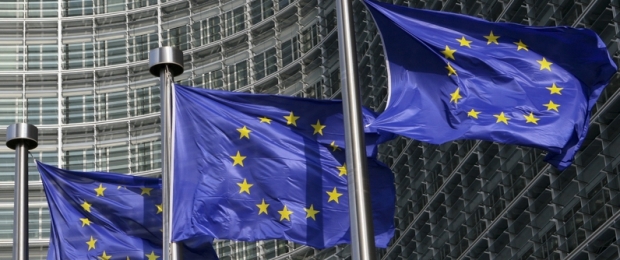
Why Europe does not need a new president
Powerful political forces in the Convention on the future of Europe and elsewhere, are calling for the appointment of a president of the European Council. The British and French governments, the Council of Ministers' secetariat and even the Centre for European Reform have all backed the idea that member-states should appoint a Council president to help steer the EU's agenda.
But I believe this is a thoroughly bad idea which must be resisted if the institutional framework of the EU is to avoid serious, and possibly irreparable damage.
The plan is premature, in the sense that it could only work if member-states and the other EU institutions were unanimous in their support for a single figure to speak for Europe. Yet those most supportive of the new president reject the most effective route towards that objective namely to build on the achievements of the Commission. Moreover, a Council president is likely to prove superfluous and merely would add to the present institutional confusion.
Presumably the new president would need the support of new bureaucratic structures, well beyond the limited role of the existing Council secretariat. But the creation of a new European civil service would complicate policy-making, increase costs for tax-payers, and lead to competition between bureaucracies. For instance, would we then have two different EU delegations in foreign capitals?
Some supporters of the new president, such as Charles Grant in his recent essay in New Designs for Europe (CER, October 2002), urge us to 'balance' him or her with a Commission president who would act, on the model of the French fifth republic, as a prime minister or even chief executive. But the outcome of creating both a strong Council and Commission president would sadly be all too predictable: the two figures would compete with each other to speak to the EU's allies abroad.
Even more importantly, such a scheme runs the risk of undermining Europe's greatest achievement: the delicate balance between the interests of the states and that of the European common good. The Commission's task is to define the common European interest. In fulfilling this role, the Commission offers some protection to member-states both large and small even if it is the Council and the Parliament which ultimately decide on European legislation.
The creation of a council president, without a clearly defined role, would upset this balance of interests. Inevitably, many smaller states and the Commission believe that larger countries are using the president idea to strengthen their role within the Union, and to give the heavy hand of inter-governmentalism primacy over the balanced system that Jean Monnet imagined. The likely result would be the emergence of more ad hoc alliances in the Council, without the checks and balances of the current system, which have kept power politics at bay.
Is the real purpose of this idea of co-regency to undermine the whole idea of the Commission as a body which produces and implements policies in the common European interest? For example, would the Council president seek to diminish the role of the Commission in co-ordinating policy on the euro, by strengthening the Euro Group?
There is also the question of democratic control. Much of the debate in and around the Convention is about how to make EU institutions more democratic and accountable. A permanent president of the Council, appointed by his or her peers, unaccountable to any parliament and without any clear democratic mandate, hardly tackles this problem. Either he would be a technocratic chairman of meetings (in which case, why bother?); or he would yield real political influence in which case, at whose behest and with what democratic accountability?.
The increasing competition between the Council secretariat and the Commission is deeply disfunctional. As Gilles Andréani observes in his excellent essay What future for federalism? (CER, September 2002), this stems from the ascendancy of inter-governmentalist thought in many EU countries. This competition is especially harmful to EU foreign policy, despite the fact that High Representative Javier Solana does a good job. He or his successor should also attend Commission meetings as of right and preferably as a commissioner. But in order to ensure that the Commission did not exceed its legal competences, this figure would still need to perform certain duties through the Council of Ministers rather than the Commission.
Over the last ten years the European Council has taken on too much rather than too little. It lost its true strategic purpose, thereby weakening the Commission and even the General Affairs Council (the meetings of foreign ministers which are supposed to deal with general issues). The business community is concerned by this development, as can be seen from the recent submission from the European Round Table of Industrialists to the Convention. This group of 46 of the largest industrial firms in Europe has firmly supported the centrality of the Commission in the development of the Union.
There are certainly strong and ultimately persuasive arguments against the current six-monthly rotating presidency. It does create a stop-and-start momentum that can disrupt a orderly legislative process. On the other hand the rotating presidency has some advantages, such as ensuring that EU capitals and the peoples of Europe can be directly, if somewhat irregularly, involved in the governance process. The practice of holding summit meetings in member-states brings Europe closer to the people and diminishes the pervasive sense of the EU as foreign and somewhat alien.
The need for reform of the presidency cannot be denied. Perhaps the best solution would be for a triumvirate of member-states to hold the presidency, for a period of longer than six months. But such a reform would not require the appointment of a new Council president a crazy idea that threatens the entire integration process in an enlarged Union.
